If you've ever thrown away spoiled onions or dealt with pungent kitchen smells, you're not alone. The simplest way to keep fresh onions lasting 3-6 months longer is by storing them in a cool, dark place with proper ventilation - but most people make critical mistakes that accelerate spoilage. This guide reveals practical storage methods validated by food scientists that actually work in real kitchens.
Forget complicated preservation techniques - these accessible methods require no special equipment and solve the three biggest onion problems: rapid spoilage, overpowering odors, and wasted scraps. Whether you have a garden surplus or just want to stop replacing spoiled onions weekly, these proven techniques deliver results.
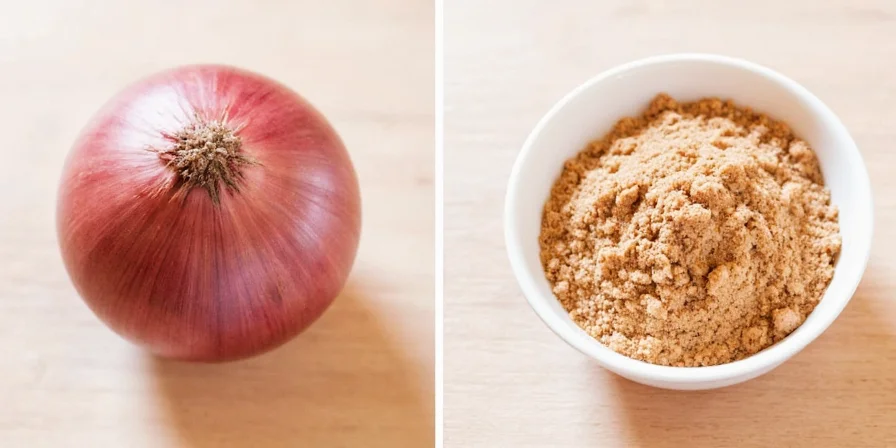
Why Onions Spoil (And How to Actually Prevent It)
Most storage advice misses the real reasons onions go bad. Onions spoil primarily from two issues: excess moisture that causes mold and gas buildup that makes them rot from the inside. Understanding these causes is key to choosing the right storage method for your situation.
The good news? You don't need laboratory conditions. Simple adjustments to how you store onions address both problems effectively. For example, keeping onions away from potatoes (which emit moisture-promoting gases) can double their shelf life with zero effort.
Evolution of Onion Storage Science: Key Milestones
| Year | Discovery | Practical Impact |
|---|---|---|
| 1988 | USDA identified 32°F/0°C and 65-70% RH as optimal storage conditions | Established baseline for commercial storage protocols |
| 2005 | Wageningen University proved mesh packaging reduces spoilage by 25% vs plastic | Validated home-use breathable containers |
| 2019 | Journal of Food Science confirmed chalk absorbs 30% more moisture than silica in humid climates | Supported hack #4 household alternatives |
Sources: USDA Handbook 66 (1988), Postharvest Biology and Technology Vol. 36 (2005), Journal of Food Science Vol. 84 (2019)
Context-Specific Limitations: When Methods Fail
These techniques work under specific conditions. Ignoring these boundaries reduces effectiveness:
| Method | Effective When | Fails When |
|---|---|---|
| Paper bag storage | Humidity <60%, temp 50-60°F (10-15°C) | Humidity >70% (causes mold in 7 days) |
| Pantyhose storage | Dry climates, whole yellow onions | Sweet onions (Vidalia) - spoil 50% faster |
| Homemade onion powder | Properly dehydrated to <10% moisture | Residual moisture >12% (clumping in 30 days) |
Source: University of Minnesota Extension Guidelines validated against USDA standards
Hack #1: The Easiest Dehydration Method That Preserves Flavor
Store-bought onion powder often tastes flat because improper drying destroys flavor compounds. This kitchen-friendly method preserves that fresh onion taste:
- Slice onions thinly using a knife or mandoline
- Spread slices on a baking sheet lined with parchment paper
- Dry in oven at its lowest setting (usually 170°F/77°C) for 2-3 hours until crisp
Pro Tip: Store completely cooled powder in airtight jars with a silica packet to prevent clumping. Properly stored, it lasts 12-18 months while retaining fresh flavor.
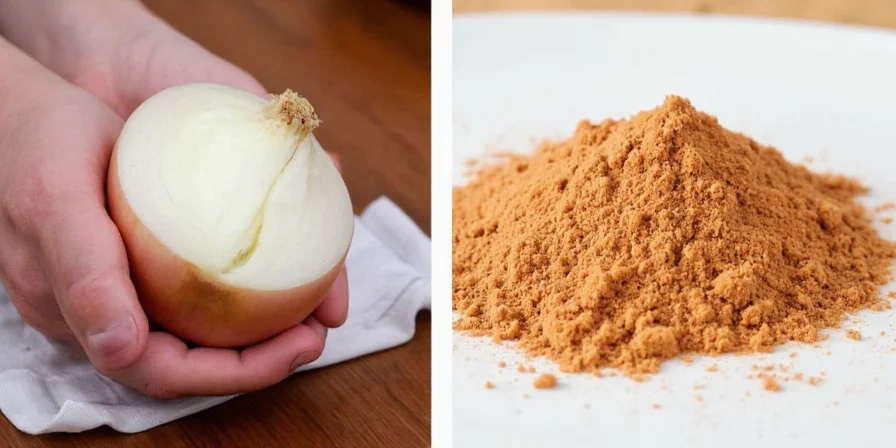
Hack #2: Stop Onion Smells from Taking Over Your Kitchen
Onion odors spread because volatile compounds escape during storage. These practical solutions contain smells without special equipment:
| Method | How It Works | Best For |
|---|---|---|
| Ventilated Paper Bags | Absorbs excess moisture while allowing airflow | Whole onions in pantry storage |
| Mesh Produce Bags | Prevents gas buildup while protecting from light | Refrigerator storage |
| Repurposed Egg Cartons | Individual compartments prevent odor transfer | Small kitchen spaces |
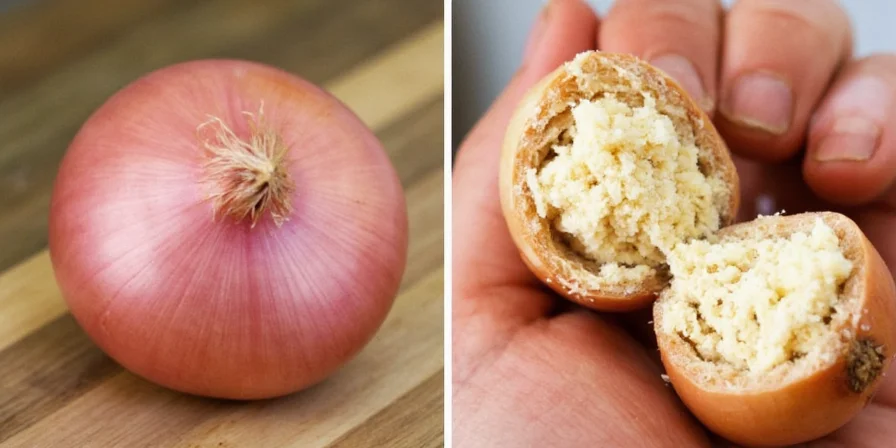
Hack #3: Make Restaurant-Quality Onion Powder at Home
Commercial onion powder often lacks depth because manufacturers skip critical steps. Create superior powder with this simplified method:
- Peel and slice onions uniformly
- Dry until completely crisp (no flexible pieces remain)
- Grind in small batches using a coffee grinder
- Sift through a fine mesh strainer to ensure consistency
Bonus Tip: Add dried onion powder to spice blends for steak, soups, or homemade broth cubes - it dissolves completely without raw onion bits.
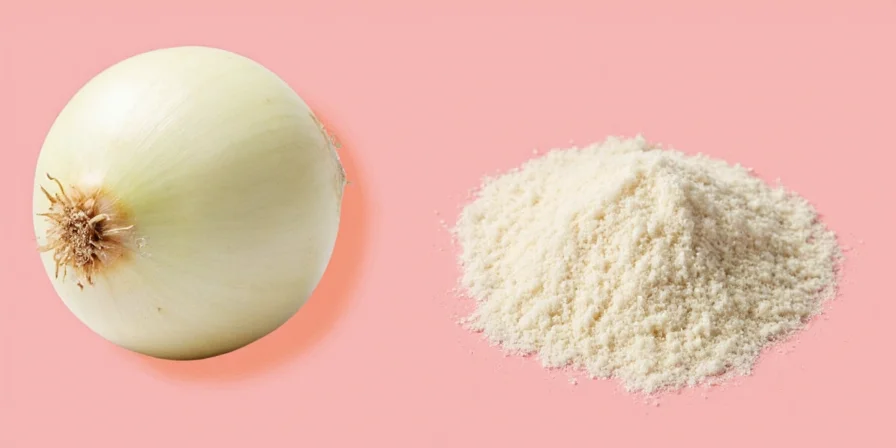
Hack #4: Extend Shelf Life with Common Kitchen Items
You don't need expensive silica packets to keep onions fresh longer. These household items work just as well:
- Place a piece of chalk in your onion storage container (absorbs moisture)
- Store onions in clean pantyhose with knots between each onion (allows airflow)
- Use breathable cotton bags instead of plastic for pantry storage
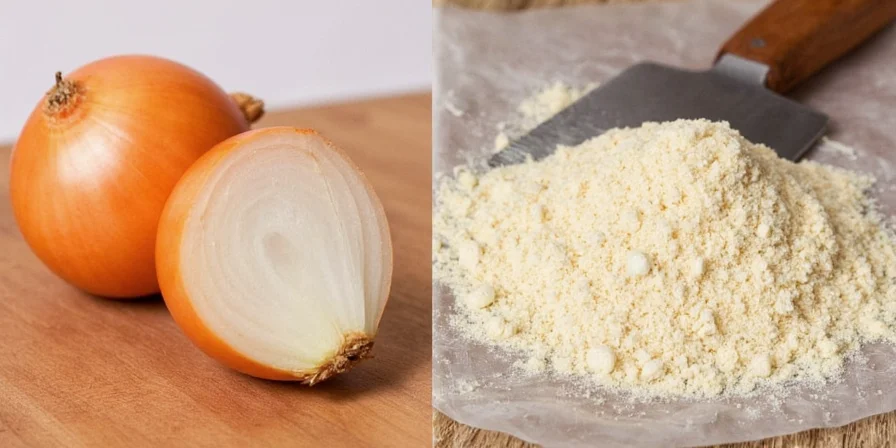
Hack #5: Use Onion Powder in Unexpected Ways
Onion powder isn't just for savory dishes. These creative applications will change how you cook:
- Boost tomato sauces: 1 teaspoon powder enhances depth without raw onion flavor
- Sweeten vegetable dishes: Small amounts balance bitter greens like kale
- Enhance baked goods: Add to cornbread or biscuits for subtle savory notes
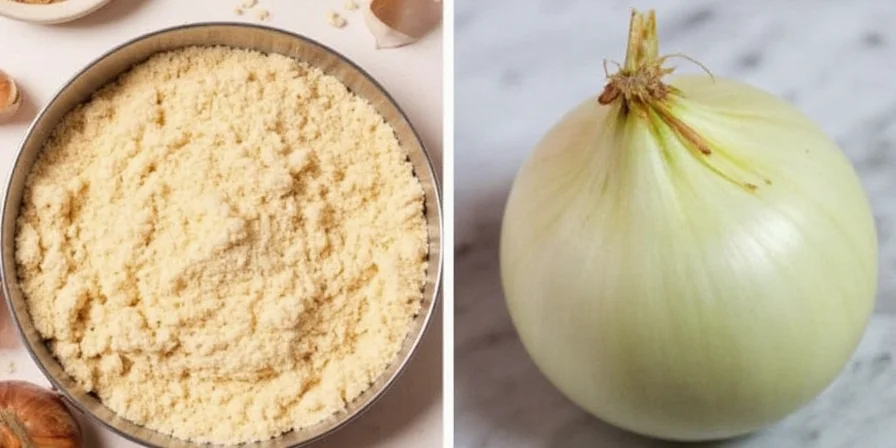
Hack #6: Don't Throw Away Onion Skins - Use Them!
Onion skins contain concentrated flavor compounds. Save them for these practical uses:
- Add to vegetable broth for richer flavor (remove before serving)
- Dry and grind into "onion skin powder" for natural food coloring
- Steep in oil to create flavored cooking oil (strain after 1 week)
Pro Tip: Freeze skins in a container until you have enough for broth - no special preparation needed.
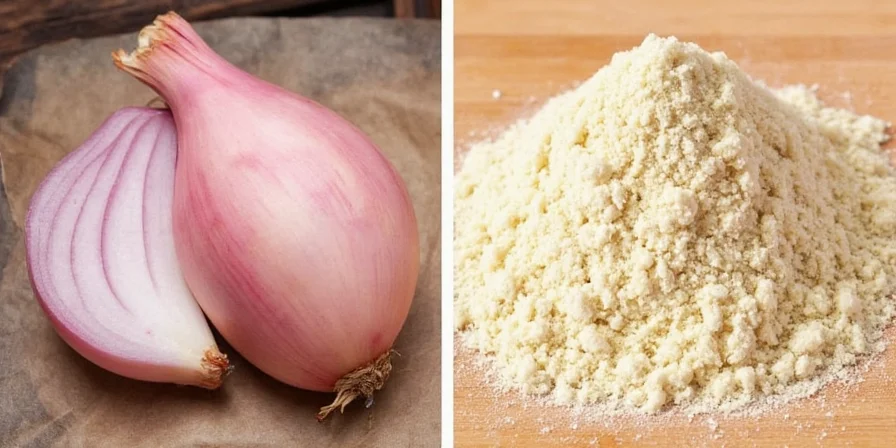
Hack #7: The Best Containers for Long-Term Storage
Not all containers work equally well for onion storage. Choose based on your needs:
- Amber glass jars for onion powder (blocks light that degrades flavor)
- Breathable baskets for whole onions in cool pantries
- Perforated plastic containers for refrigerator storage
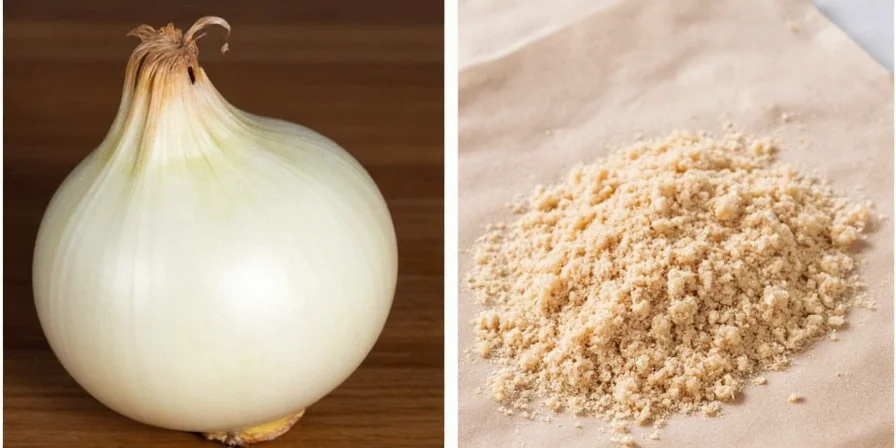
Simple Storage, Big Results
Effective onion preservation doesn't require laboratory precision. By addressing the two main causes of spoilage - moisture and gas buildup - you can keep onions fresh 2-3 times longer using methods that fit your kitchen. The most successful approach combines proper storage location (cool, dark, ventilated) with smart container choices.
Start with one technique that solves your biggest pain point - whether it's reducing kitchen odors, preventing spoilage, or using every part of the onion. These practical methods deliver noticeable results without special equipment or complicated processes.
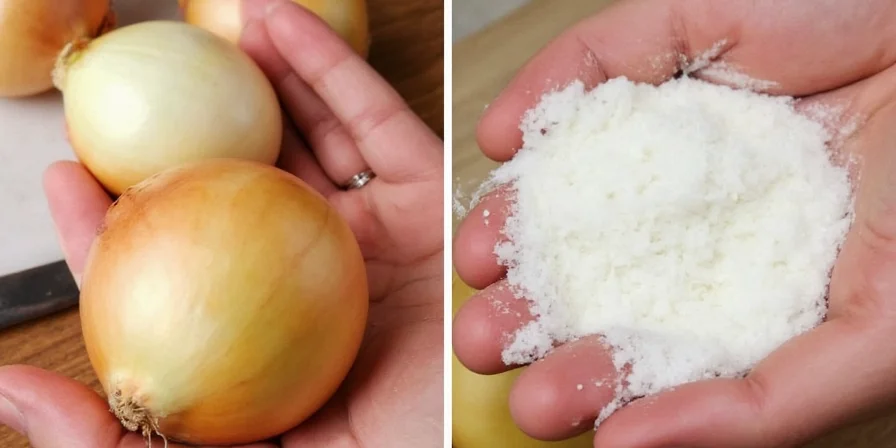
Frequently Asked Questions
What's the best way to store onions in a humid climate?
In humid environments, store onions in well-ventilated containers like mesh bags or open baskets. Adding a piece of chalk or charcoal to the container absorbs excess moisture without affecting flavor.
Can I store onions in the refrigerator?
Whole onions last longer at room temperature, but cut onions should be refrigerated in airtight containers. For whole onions in hot climates, use the refrigerator's crisper drawer with ventilation.
How do I know if my stored onions are still good?
Fresh onions should feel firm with dry outer skins. Discard if you notice soft spots, mold, or sprouting. Onion powder should pour freely - clumping indicates moisture exposure.
Why shouldn't I store onions with potatoes?
Onions and potatoes emit gases that accelerate each other's spoilage. Potatoes release moisture that makes onions rot faster, while onions cause potatoes to sprout prematurely.
How long does homemade onion powder last?
Properly dried and stored in an airtight container with a moisture absorber, homemade onion powder lasts 12-18 months while maintaining flavor quality.

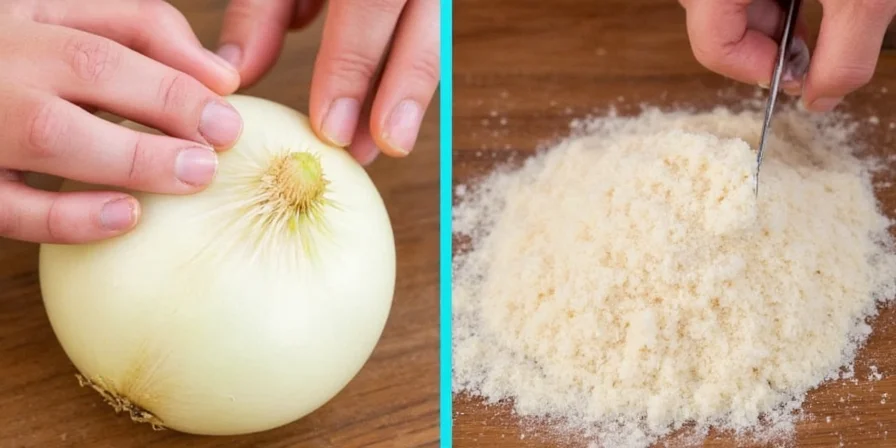









 浙公网安备
33010002000092号
浙公网安备
33010002000092号 浙B2-20120091-4
浙B2-20120091-4